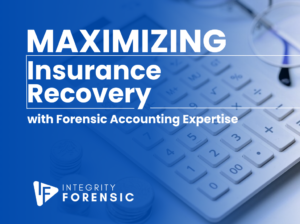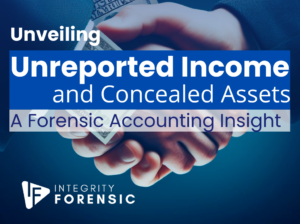Financial statement fraud can have devastating consequences for businesses and stakeholders. To effectively combat this type of fraud, organizations must employ comprehensive strategies that leverage forensic accounting techniques. In this blog, we will explore how forensic accounting can help maximize your chances of success in financial statement fraud investigations. By incorporating real and current statistics, we will provide insights into the benefits and tools of forensic accounting.
Leveraging Forensic Analytics
Forensic analytics plays a crucial role in fraud investigations by combining advanced analytics with forensic accounting and investigative techniques. By integrating artificial intelligence (AI)-based data analysis with skilled forensic investigation, forensic analytics helps identify potential fraud signals and patterns in vast amounts of data. This early detection can enable organizations to thwart and prevent fraudulent activities before significant losses occur.
Strengthening Controls with Forensic Accounting Tools
Forensic accounting tools are instrumental in deterring fraud in financial statements. These tools allow forensic accountants to conduct in-depth investigations and analyze financial data for anomalies and irregularities. Techniques such as forensic data analytics help identify patterns and trends that may indicate fraudulent financial reporting. By leveraging these tools, organizations can proactively address fraud risks and strengthen their internal control systems.
Collaboration and Expertise
Successful financial statement fraud investigations require collaboration between forensic accountants, legal teams, and other relevant stakeholders. Forensic accountants possess specialized knowledge and expertise in conducting fraud examinations, analyzing financial data, and providing expert testimony. Their insights can help organizations uncover fraudulent activities, gather evidence, and build strong cases for legal action. By working together, these professionals maximize the effectiveness of fraud investigations and increase the chances of successful outcomes.
Compliance and Prevention
Preventing financial statement fraud requires a proactive approach that focuses on compliance and risk mitigation. Organizations should establish robust internal control systems, implement thorough monitoring mechanisms, and regularly assess the effectiveness of their fraud prevention programs. Training employees on fraud detection, reporting mechanisms, and ethical conduct is also essential in creating a culture of fraud awareness and prevention. By emphasizing prevention and compliance, organizations can minimize the occurrence of financial statement fraud and protect their stakeholders.
In conclusion, financial statement fraud investigations require a multidimensional approach that incorporates forensic accounting techniques and tools. By leveraging forensic analytics, strengthening controls, fostering collaboration, and prioritizing compliance and prevention, organizations can maximize their chances of success in uncovering and preventing financial statement fraud. Investing in the expertise of forensic accountants and utilizing the latest forensic accounting tools will help organizations proactively detect and mitigate fraud risks, safeguarding their financial integrity and maintaining stakeholder trust.
At Integrity Forensic, we have a team of experienced forensic accountants to assist you. Call now for a free consultation: 855-673-9999 or send us a message at questions@integrityforensic.com.





